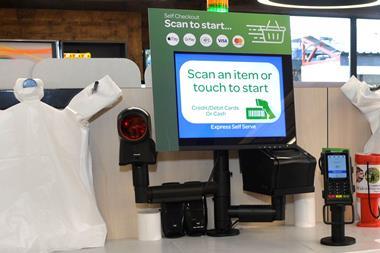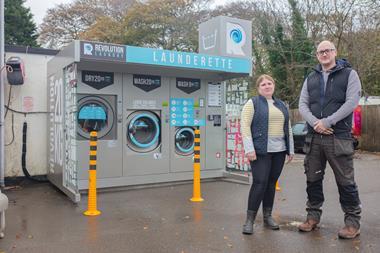Who sets the standards?
It has always struck me as ironic that you pay for insurance for peace of mind and wind up fighting for compensation when things go wrong. And obviously this does happen because some of the insurance packages these days, such as Bluefin’s forecourt policy, include a loss recovery service which means if someone pinches all your fags you will have someone to fight your corner.
This is what Lalith Perera needed after one of his two businesses (Gnosall Service Station in Stafford) was broken into last July with almost all the tobacco taken.
He writes: "We claimed the tobacco loss from the insurance and they referred the amount to an independent assessor. Now we have a long ongoing argument about their suggested compensation. They worked on our average weekly purchase (around £1,800) and multiplied it by two weeks to get the average stock in the shop. Normally, we have about four weeks tobacco stock before the delivery. We asked how they arrived at this average two weeks’ stock and they said it is the industry standard."
I had a few conversations with a few people. No one wanted to go on the record but as one said: "If there is an industry standard of two weeks I’ve never heard it, and I’ve been doing this for 20 years."
The onus of proof of the amount of stock lies with the policy holder and this should be demonstrable through invoices and some sort of trail. But Lalith did that.
"We have claimed only £4,600. Recently we sent figures from our last stocktaking (ie 31/12/08) and all purchases and sales up to the incident to calculate the stock. As per our calculation the stock value is around £ 7,500 (obviously we have some stock in the back office which was not taken)."
The insurance company wrote to him saying: "There is an average weekly purchase of £1,854.91 (daily purchase £264.98) and allowing for, say a week, the maximum stock held by you at the time of the theft on July 11, 2009 would be £3,709.82 since the last purchase on the 8th (July). As the loss occurred three days after the last purchase of stock, the stock in hand would be £3,709.82 less three days (three x £264.98) = £794.94." Therefore, concludes the company, "Loss of stock would be £2,914.88."
From the various conversations I had, I would conclude that the ’independent’ hired by the insurance company was a loss adjuster rather than a loss assessor and their job, when employed by insurance companies, is to limit the amount their employers pay out.
I have suggested to Lalith that he takes a tough stance, writing back to say he is rejecting the company’s derisory offer as there is no such industry standard and further saying that he is seeking professional advice.
This may bring a better offer. Failing this he can hire his own loss assessor. Insurance companies don’t like them much, regarding them as sort of ambulance chasers. However, even if they take 5% or 10% of the amount claimed, it will be a percentage of a higher sum.
Threats that also bring opportunities
As I was about to start this column, Radio 4 was announcing that the Carbon Trust was investing £7m to look at cooking (pyrolysis) grass cuttings as a fuel source. In the last column I asked whether electric cars were on our doorstep, quoting a University of Oxford study that basically thinks the hype outweighs the evidence.
Jonathan James, a longtime trend watcher, disagrees. "It is the biggest threat to our industry we just don’t know when."
He reckons though that it will be sooner rather than later.
"There is a company in the States buying up old fuel stations and changing them into recharging centres."
By 2018 he thinks there will be a sufficient network in place in this country. "Tesco is in discussion with manufacturers to see if recharging time can be reduced to one hour."
As he sees it the industry will get ’second fill’. People will charge up at home but will need to recharge while out and about.
Jonathan is quite a high-profile retailer and he is out there, mixing it, but he says colleagues treat these theories as somewhat soapbox.
"I think we are in denial. I talk to lots of switched-on guys and I get ’yeah, yeah, okay Jonathan’."
The future is not necessarily bleak though. "It’s the biggest threat but it’s also the biggest opportunity. At the moment it takes one minute thirty seconds for pay-at-the-pump petrol. It will mean a lot more time spent at the forecourt. There have to be opportunities."
I have another question to throw into this mix. What about tax? How will the government replace the revenue it collects on its current favourite flavour of fuel?
They’re singing from the same Him-sheet
In the last issue I recounted Paypoint’s footfall argument. Spokesman Peter Brooker adds that the figures printed were not collected by Paypoint but by independent research company Him.
They want you to know that they were not making it up when they said that 78% of retailers believe the service brings in extra footfall!
Trouble is it’s those who make up the other 22% who call me.






























No comments yet